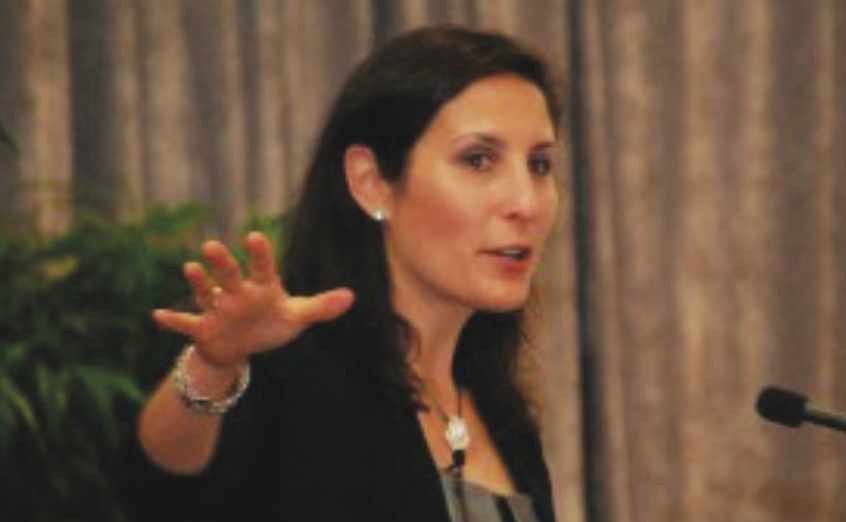Students held mixed opinions of Ms. Rosalind Wiseman’s and Mr. Charlie Kuhn’s work after the consultants visited the School for the second time this year on February 1. Ms. Wiseman and Mr. Kuhn presented their new goals of improving the new student orientation during that school meeting, and they stayed until February 3 to meet with various student groups.
During their second visit, Ms. Wiseman and Mr. Kuhn met with the Young Democrats; the Young Republicans; Responsibility, Intellect, Sisterhood, and Empowerment (RISE); Students Advocating Gender Equality (SAGE); and the Committee on Respectful Relationships (CORR).
Many members of the groups interviewed afterward believe that there have been no concrete changes on campus since these visits. CORR Co-founder Nicole Sellew ’17 said, “I don’t think they have made a lot of strides here. The survey from the fall did a good job gauging the attitude of the community, but the delay in analyzing the results has hindered conversation. There seems to be a lot of talking and not as much action as I would like to see.”
The secretary of RISE, Abbi Drummond ’18, commented, “The discussion we had with Ms. Wiseman and Mr. Kuhn was a continuation of the discussion we had the last time when we met with them about the problems faced by women of color at Choate, socially, academically, and economically. These problems are things such as a feeling of more pressure to perform well academically and also less standing on the social ladder at Choate because of things such as being less able to be included in hookup culture. ” She elaborated, “Honestly they haven’t been very good at doing anything. For example, the Counseling Office hasn’t been changed from the time they first came last year to now so it’s kind of confusing as to what their point really is here.”
Sellew also questioned Ms. Wiseman’s and Mr. Kuhn’s plans. “I’m not sure what they want to achieve. ‘A culture of dignity’ seems fairly ambiguous to me, and I’m not sure what steps the community needs to take to get there. I want Choate to be a place where everyone feels safe and respected in relationships — and feels confident enough in themselves and in the community to speak up if they are not feeling safe and respected. I hope that’s something we can achieve, and I hope that Rosalind and Charlie can help with that. I’d like to see a realistic action plan, and not just vague statements or words,” she said.
Liza Diffley ’19 disagreed. “It’s good to get the repetition in those kinds of subjects, especially mental health, since it’s so prevalent on campus. Even just reminding us what our resources are and explaining what people can do for you is good to hear. I think Ms. Wiseman has been clear about how she wants to improve relationships and hookup culture.”
In contrast, Caleb Hastings ’18 said, “There is so much more diversity in social dynamics and circles than she can ever hope to account for, or anyone can hope to account for, without getting to know each and every student personally. There isn’t just a handful of issues that all or most Choate students encounter; everyone tackles different social problems.”
Efforts to change the orientation are the second major project Ms. Wiseman and Mr. Kuhn have spearheaded. In the fall, two mandatory school-wide surveys, created with the help of students and faculty, were used to further understand campus culture. Mr. Kojo Clarke and Veronica Song ’17 presented the results of the survey at an all-school meeting, and advisory groups met the week after to discuss the results.
Antigone Ntagkounakis ’17, President of SAGE, helped draft a proposal to further Choate sex education to include discussions of gender roles, sexuality, and consent. She supports Ms. Wiseman’s plan to reform Sophomore Seminar: “We were all in agreement that Sophomore Seminar could be changed into a long-term, sex-positive learning opportunity for students.”
English teacher Ms. Brooke Rea said, “I have limited experience with Ms. Wiseman’s and Mr. Kuhn’s presence at Choate but from what I can tell, it seems like their goal is to learn as much as they can about the culture and community of the School and assess where our needs are if we want to continue to improve. I’m not entirely sure what changes have come about as a direct result of their findings, but I think that when they work alongside faculty and students that really know the community, they may be able to come up with some good new initiatives.”





